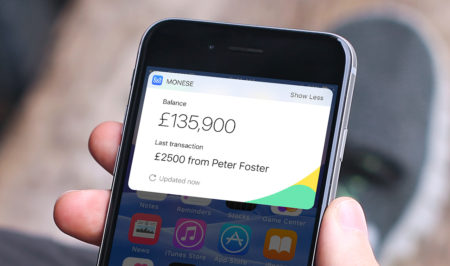“Do you offer a new client discount?”
“I’d love to work with you. If you can do my project for $X, I’ll start today.”
As a creative, you’ve probably heard something like this (or worse) all too often.
It’s stressful. It’s frustrating. And it makes you question yourself and your pricing…and often, take work at a lower rate because you really want the project.
No doubt about it, it’d be amazingly wonderful if many clients stopped treating creative work like garage sale wheeling and dealing. But remember it takes two to tango — if clients continue to get cheaper creative work by haggling, they’ll continue to do it.
So how do you stop price haggling in its tracks…and often still win the project?
Here are some great responses I regularly use in my job where I regularly manage over 115 active projects and see over 60 proposals cross my desk each month.
#1: Explain your value
For potential new clients, the first response to price haggling I start with goes like this:
It’s true we’re a bit more expensive than some other companies (though we’re definitely not the most expensive option out there). That’s because our main focus is very high quality and amazing customer care. We don’t cut any corners. Our creative agency started Reliable because we ourselves had years of horror stories with these cheaper PSD to Code companies, so we finally decided to start our own that did things right. We created the service we always wanted to have.
And in fact, while our “sticker price” is higher, we hear from clients all the time that they end up saving far more because of all of the time and hassle we help them avoid.
However, if we’re just not in the budget, I understand. 🙂
Best of luck on the project!
I’d love to work with you in the future if we’re a good fit.
Notice a couple of very key points here:
1) We acknowledge we’re not trying to win you on price. You’re coming to us because you’ve probably tried the WalMart of coding companies and it felt like it…hour-long returns line and all.
2) We explain why we can’t discount our price. We’ve got moral standards, and you probably do, too! Don’t be shy about sharing them. 🙂
3) We’re willing to walk away from the project if it’s not a good fit for us, no hard feelings. (So tough to do, especially as the price tag grows!)
4) We open the door for the next project. We understand some clients projects aren’t a good fit, but that doesn’t mean the next one won’t be!

The surprising result? When potential clients price haggle, our project approval rating at our original price is still about 60% using this exact response (and nothing else) if the client decides to respond back.
And the even more eye-opening statistic? On about 15% of the projects we don’t get, clients say, “for this project, my client can’t afford it. But I’ll be back for the next one.” AND THEY ARE.
Mind-blowing, eh?
#2: Break it down
For repeat clients, the argument often goes something like this: “Project A cost $X, and this is pretty similar, so I don’t understand why Project B is [so much] more.”
For this haggle, I break it down.
Yes, it takes time to pull up their previous projects and compare apples to apples (if you’re lucky, otherwise it’s more like apples to zippers), but this really helps your client see where the additional pricing comes in – and that you took the time to actually answer their question.
Example:

“Thanks for asking! I looked over both projects and here’s what I found:
Project A was $X for the following:
<list out the relevant project specs>
Project B is $Y, and it entails:
<list out the relevant project specs>

So you can see that Project B includes C, D, and E, and these elements are more difficult / complex / time-intensive than Project A’s elements F and G.
Does that make sense?
Let me know if you have any additional questions! I’d be happy to chat with you on the phone as well.”
The key points here are:
1) Thank them for asking. That sets the tone that you’re not threatened by their question, and that if they were correct, you’d likely adjust the price. (And you should if they are…)
2) Actually doing the work to compare the projects side-by-side. In almost every client haggle / objection, if I have the data to back up our claims, there’s not much wiggle room for further questioning.
3) Offering to talk it over or address further issues. Sometimes we misunderstand and they don’t need element D at all, and a quick phone call to a real live person to clear things up can often mitigate any friction or several days’ worth of back and forth emails.
Note: Phone calls seem scary, and I still sometimes get super-anxious about them. But people in general are friendly and cooperative in real-time communication…no one wants to come off as a total jerk to start a project! After all, they WANT you to work with them!
(And if they are jerks on the phone…you can nope the heck out.) 🙂
#3: Offer a predetermined discount
Discounts, when used properly, can be excellent tools to boost business, get your name out there, and curb price haggling.
After all, if you’re in the market for shoes and the new shoe store in town sends a coupon code in the mail, you might go there just to check it out and see if … heheh … they’re a good fit. (bad pun intended)
It works the same with almost any business.
So at Reliable, we offer a new client 10% discount for your very first project ever with us. Just doing this alone gives potential new clients an incentive to at least get a proposal.
And truly, starting a dialogue is the single most important thing you can do to turn potential clients into new clients.
Small tangent: Earlier this year, we noticed that the vast majority of our new clients had a small dialogue with us before choosing us as their development team. So when clients ask us for proposals, we email them back 1) thanking them, 2) getting started on their proposal, and 3) asking them a (relevant) question.
This tiny change in our response email has resulted in a roughly 10% increase in approved proposals from brand new clients.
</end tangent>
Do some of our new clients turn into one-offs that just need 1 website and never contact us again? Sure.
Does that eat into our profit a little bit? Absolutely.
But because we carefully market specifically to clients with repeat potential, 85% of our clients reach out to us a second time. So we’re okay with those occasional one-offs, because sometimes they have a friend or a peer or a second company that could use our services, too.
Example: Let’s say our new client has a small project – $500. You give them a $50 (10%) discount on the first project, and they come back just once with another $500 project. So you “spent” $50 to make $500…that’s a 1000% ROI.
If they return again or their second project is larger, so is your ROI.
That’s a darn good deal.
In particular, new client discounts can work really well because they’re discounts with a purpose, not just “well, you haggled long enough and I’d really like to work with you, so…how about this price instead?”
Furthermore, having this 10% new client discount in place right from the get-go allows you to avoid the additional haggle once you hand over the proposal. You’ve already factored in that 10% discount, so if they still have concern over the price, you can follow up with your spiel from #1.
(And if their budget is that far away from your proposal, you’re probably not a good fit for one another.)
#4: Ask why
Full disclosure: I’ve actually never tried this myself, but I read a very interesting article somewhere (I don’t remember the author or the title), and in the right situation, I’d love to try it.
Essentially, ask your client why they think they deserve a discount. (Nicely, of course.)
Who knows, they may have a legitimate reason!
Is this their 10th project with you this year? Maybe it’s time to introduce a “frequent flier” program or discount milestone projects.
Are they a non-profit that you might consider donating some work for?
At the very least, it’ll make them think twice about what they’re asking for.
Final thoughts
Everyone is looking for a better deal – how many of us scour the internet for coupon codes? Call our service providers and ask for better pricing? Talk down our credit card companies to a better APR?
Price haggling is generally an uncomfortable experience, but in all likelihood it’s something you’ll be dealing with for the rest of your professional career.
Build your toolbox of answers for each situation type that arises, and keep honing those responses! You’ll be surprised how much easier it is to deal with – particularly emotionally – if you’ve already got a process in place.
Instead of having to go through an internal struggle and decision-making process every single time, you simply “follow the steps” you’ve already put in place.
Yes, there will be exceptions. But take the stress out of it as much as possible so you can get back to doing the fun part of your job! 🙂
Suggestions? Comments? Tips? Share ’em in the comments. I’d love to hear from you.
Keep the conversation going...
Over 10,000 of us are having daily conversations over in our free Facebook group and we'd love to see you there. Join us!




Very nice. Thank you for sharing these great tips!
Great stuff here! Going along with this is the client refusal to give a downpayment because, “well, it’s such a small job”.
Hey Steve,
Thank you, and agreed! 🙂 Here I have the luxury of just saying it’s company policy, but for a solopreneur, I’d just explain that it’s nothing personal and they’ve done nothing wrong, but that you’ve been burned in the past and you can’t afford to take that risk with your business.
Hope it helps!
Another great article, thanks April. Thankfully I haven’t experienced this yet (in fact, I recently had a contact tell me to increase my quote as the end client would be very demanding – I did, but she wasn’t, so I gave a bit extra instead!) but it’s fantastically useful to have these tools in my armoury so I’m ready if I do need them.
Hey Alice,
You’re so welcome, and thank you!!! 🙂
I’m glad you’ve not been in this boat yet — it can be stressful.